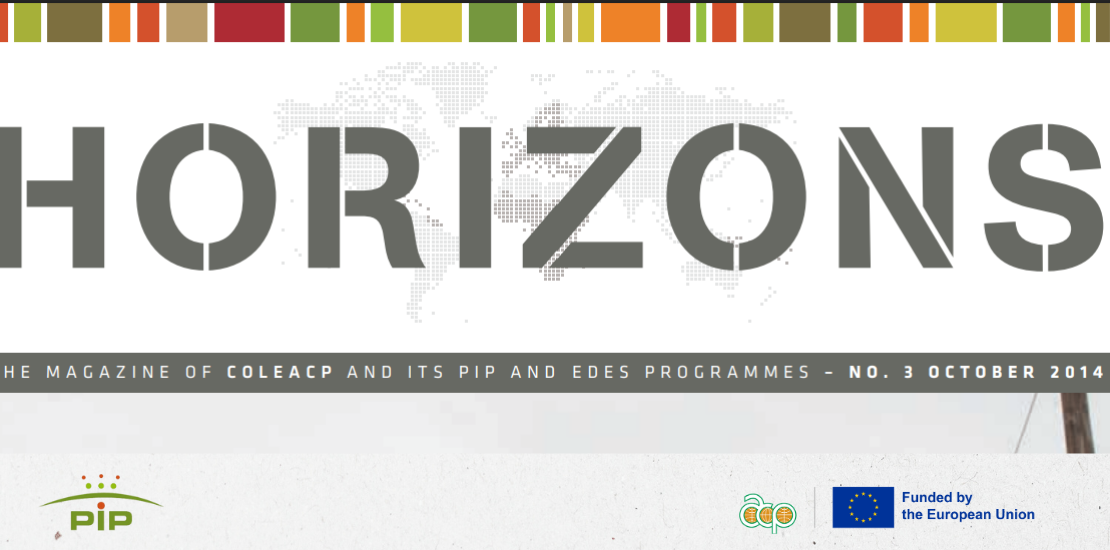- 03/11/2025
- Posted by: Sandra Borma
- Category: News

Source : Horizons magazine, October 2014
(…) COLEACP helps farmers improve the quality of products for the local market. As the standard of living rises in the ACP states, short supply chains now offer real opportunities for economic development. Local and regional markets are developing into important outlets for the agrifood sector in Africa and the Caribbean. They represent an attractive alternative to export.
In many African countries, selling goods at a stall or a local grocery is no longer limited to the informal economy. National and regional markets are developing into important outlets for the agrifood sector in Africa and the Caribbean. They represent an attractive alternative to the export trade for SMEs and small producers. With the growth of the middle class, retail chains are being put in place in African countries, with quality standards close to those of export markets. Urban authorities also tend more to adopt measures to improve the hygiene and sanitary conditions of covered and open-air markets. To connect – or stay connected – to these local value chains, (small-scale) farmers have to be able to meet the new requirements of local distributions channels. COLEACP has always been concerned about the impact on food production of its work on export crops. The PIP-2 and EDES programmes both have included this dimension and can advise on production for local and regional markets. This represents an opportunity for COLEACP to make available its methodology and capacity-building tools, originally developed for the export sector, to short supply chains.
Train-the-trainers sessions for short supply chains
In 2011, the government of Côte d’Ivoire asked COLEACP to become involved with small operators who sell their goods at local markets. It wished to help them maintain access to this outlet as the public authorities launched a programme to improve the sanitary and phytosanitary conditions for goods sold on the markets. Based on a fact-finding mission, an ambitious action plan was drawn up targeting five essential crops: banana, cabbage, tomato, eggplant and sweet potato. The main challenge was selecting the key personnel to be trained in a context of extremely fragmented production. COLEACP turned to the many cooperatives and associations that help structure small-scale operators in the country, and to two other key players in local distribution: the National Agency for Support for Rural Development (Agence nationale d’appui au développement rural – ANADER), active in agricultural extension, and Océana, a new private operator in large-scale vegetable production. Around 15 technicians selected by these structures will be trained as part of the PIP Programme. The training will focus on improving the agricultural practices of small operators: safety, hygiene, traceability, crop protection and sensible and safe use of inputs. It will also teach training practices, giving future trainers a method and tools enabling them to share their knowledge with interested parties. COLEACP has regularly organised train-the-trainers courses such as the one implemented in Côte d’Ivoire, always with a view to spreading new know-how to small producers, working through their associations or through private and public extension agencies.
In Mali, 15 trainers were trained in September 2013 based on a request by three cooperatives of small producers and two non-governmental organisations.
COLEACP has taken the same initiative in the Caribbean. Working together with the Caribbean Farmers Local and regional markets are developing into important outlets for the agrifood sector in Africa and the Caribbean. They represent an attractive alternative to export. Network (CaFAN), in December 2013, trained around 30 agriculture extension workers from throughout the Caribbean. The goal is to give 500 000 small producers in the CaFAN network access to more promising markets, including hotels, restaurants, and minimarkets and supermarkets. (…)
The Pesticides Initiative Programme (PIP) was financed by the European Development Fund. The ACP Group of States and the European Commission entrusted responsibility for its implementation to COLEACP (today COLEAD).





